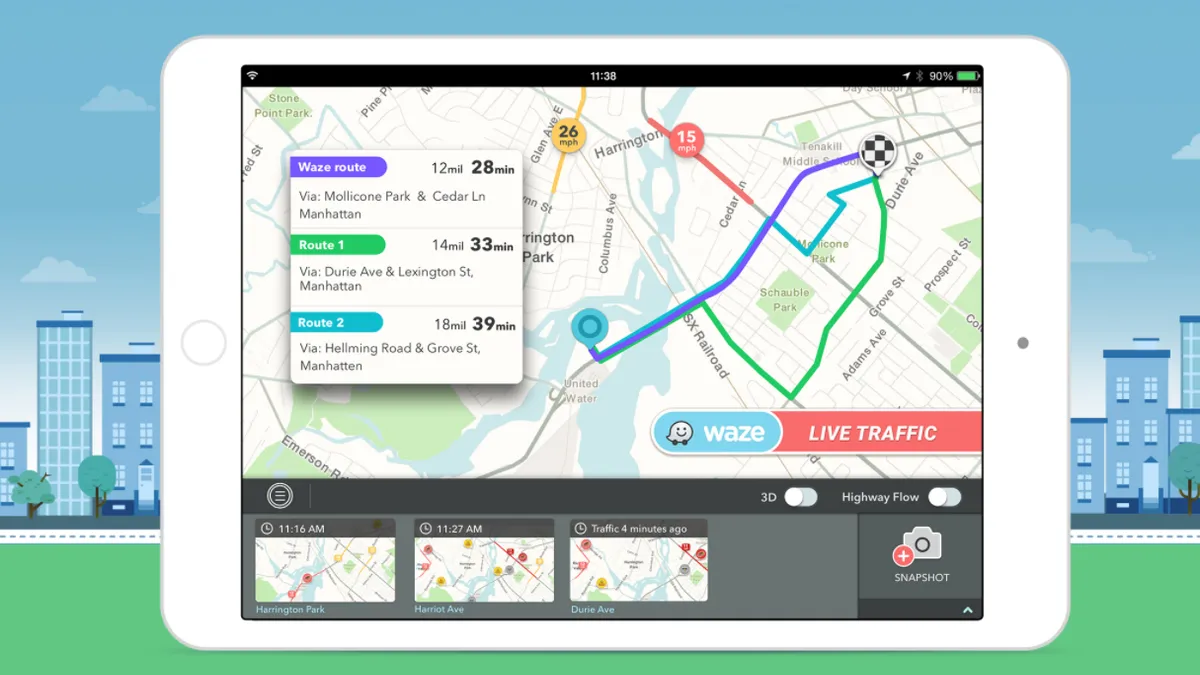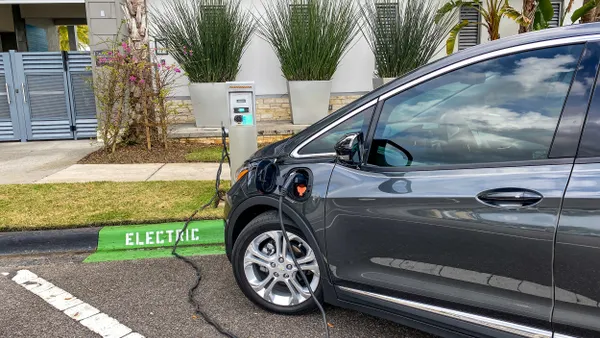Dive Brief:
- Los Angeles Councilman David Ryu sent a letter to the L.A. City Attorney’s office on Tuesday calling for legal action against wayfinding and traffic monitoring app Waze.
- Ryu said Waze, which is owned by Google, has exacerbated traffic congestion, especially on smaller arterials, as well as undermined public safety.
- "I am a champion of innovation and an advocate for new technologies. But these apps were built to serve us, not the other way around," Ryu said in a statement. "In this case, Waze is threatening the public safety and quality of life of countless Angelenos. I look forward to working with the City Attorney to bring Waze to the table and to bring a real resolution in a timely manner to these traffic nightmares."
Dive Insight:
Ryu is not the first to raise concerns with Waze’s impact on streets, but might be the first from a large city. CityLab reports the town of Leonia, NJ closed its major streets to non-resident drivers after Waze and similar apps routed commuters through. And similar backlashes have sprouted in the likes of Los Altos Hills, CA, and Takoma Park, MD, where one resident began posting fake wrecks to scramble its routing.
It remains to be seen what action Los Angeles takes against Waze, if any. Ryu did not prescribe any specific steps that could be taken but said in his letter that "any and all legal options should be considered." He warned public infrastructure will suffer if Waze continues to be allowed to route traffic on neighborhood streets. "If we do nothing, Waze will lead us on a race to the bottom — where traffic plans are ignored and every street is gridlocked," Ryu said in a statement.
Waze officials told Smart Cities Dive in a statement they have worked closely with Los Angeles since 2014, including the city’s Metropolitan Transportation Authority, Department of Transportation and Los Angeles International Airport, to give away its data at no cost and "relentlessly serve communities."
"It’s important to note Waze does not 'control' traffic but our maps do reflect public roads that federal and local authorities have identified and built for its citizens," said a Waze spokesman. "If the city identifies a dangerous condition, it is their responsibility to legally reclassify a road, which will then be reflected on the Waze map."
But in his letter, Ryu pointed to the negative impacts Waze has had on traffic in the Sherman Oaks Hills, part of his City Council district. He alleged one narrow street has been overwhelmed by 679 vehicles per hour, as Waze has diverted drivers off the 405 Freeway in the city. "This Waze-led congestion has upended carefully crafted traffic plans for a thoughtless commuting free-for-all, trapping residents in their driveways and leading to numerous accidents," Ryu wrote.
In an interview with Smart Cities Dive, Ryu spokesman Estevan Montemayor pointed to support from some of his City Council colleagues for taking action against Waze, including from Councilmember Paul Krekorian, who told the LA Daily News that such apps are "sacrificing the quality of life in our neighborhoods."
"I'm happy to say that the councilmember has spoken with his colleagues in the past and recently, and there are certainly concerns about how to work with Waze and how to best manage it," Montemayor said.












